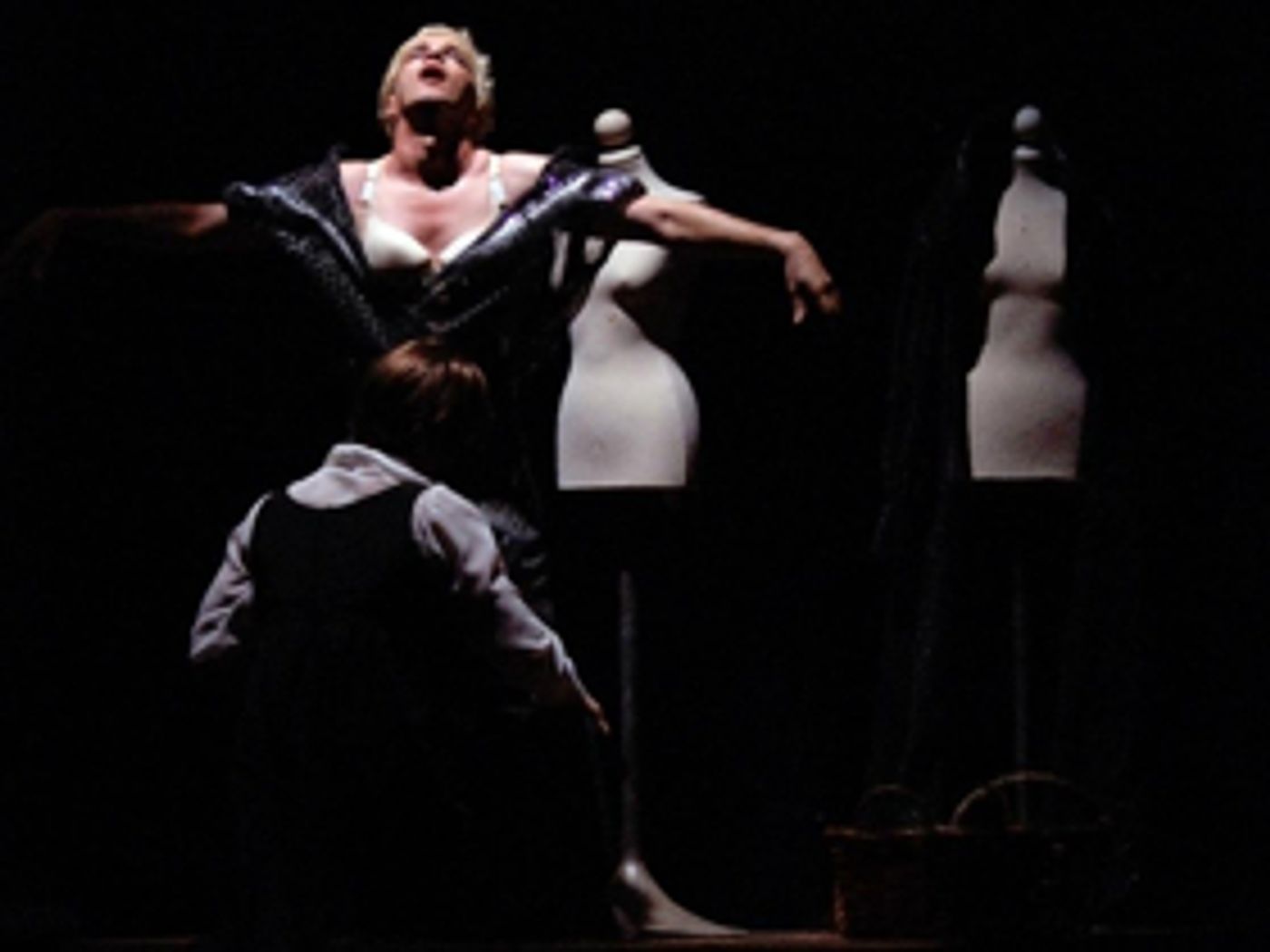Review: Havana's Teatro El Publico Takes a Fassbinder Homage, THE BITTER TEARS OF PETRA VON KANT, and Fascinates

In the early 1970's, German auteur Werner Fassbinder wrote a series of over-the-top melodramas for the stage. One of them, The Bitter Tears of Petra von Kant, centered on abusive relationships among women, one of whom - the title character-was a star in the fashion industry. An internationally-renowned film director as well, Petra von Kant soon found its way onto the big screen. Sexual scandal aside (the play and film both portray a passionate lesbian affair) in Fassbinder's hands the melodrama was not only compelling but a potent means of addressing contemporary issues.
It is also said that Petra von Kant was a thinly-veiled autobiographical piece that reflected Fassbinder's own fascination with a younger man-Petra's lesbianism standing in for Fassbinder's homosexuality. This nugget was all that Carlos Díaz, the founder and artistic director of Havana, Cuba's Teatro El Público, needed to re-conceive this piece with a male cast. What would happen if the play directly reflected Fassbinder's own troubled relationships? What happens to the play's examination of passion and sensuality, with a re-gendered ensemble?
The result is a fascinating evening of drag performance, complete with lip-synced romantic ballads as interludes. Teatro El Público's production of Petra von Kant, which regrettably only saw two performances at the Kennedy Center's Family Theatre, is both a thoughtful exploration of humanity and a classic actor's vehicle. Featuring leggy poseurs, lavish costumes, wild hairstyles (thanks to a small vault's worth of wigs), the show is a fascinating character study, and a showcase for some of Cuba's most brilliant theatrical talent.
Director Díaz has gone beyond the traditional mission of homage to a revered theatrical predecessor, however, and created a potent tale about the modern entanglements of facades, identities, and relationships.
Fernando Hechavarria's Petra rules the stage-a messy studio apartment, decked out by Roberto Ramos Mori-and the role offers opportunities for a full range of emotions, from petulance to deep emotional need to chewing-the-scenery tragic rants. He covers them all rapaciously and elegantly. As the romantic interest Karin Thimm, Petra's object of lust, Luis Manuel Alvarez is at his seductive best; director Díaz gives Alvarez every opportunity to flaunt his youthful good looks and sensuality; it's easy to understand Petra's weakness for Karin's charms. Roberto Romeo has a fine turn as Sidonie, Petra's cousin and just about the only sensible, truly sympatico character on stage. Holding down the fort, and ministering helplessly to Petra's every whim is Marlene, herself an aspiring designer, played with appropriate understatement by Yanier Palmero. Marlene's secret desires, officially suppressed, are occasionally given free rein under Díaz's direction, and Palmero discreetly offers a glimpse of what might be a Petra-in-waiting.
Not being to the manner born - we middle-aged straight guys have a horror of stiletto heels - I am not the person to ask about the quality of the female impersonation or cross-dressing here; there are nuances which went over my head completely, but I can confirm that this is much more than a gay night out. What fascinated me was how the sea-changes in American culture impact both the production and its reception.
Fassbinder worked at a time when homosexuality alone was enough to cause a scandal and pack the house with curious (and often prurient) theatre-goers. It's quite likely, too, that shows like this in and of themselves would have scandalized the straight-laced authorities of Communist Cuba (Marxists may be all for wife-swapping, but it turns out they are pathetic hypocrites when it comes to alternative sexualities).
Living as we do in an age when marriage equality has been enshrined in America by a Supreme Court ruling, where gay and lesbian couples can settle down to happy domesticity in ways Fassbinder never dreamed of, Petra von Kant on the surface might appear to be a bit old-fashioned. But look again; we live in an age of gender-fluidity, where identity and self-presentation are so much in flux that we now ask our colleagues whether "he" "she" or "they" is the most appropriate pronoun.
As the shock value of cross-dressing and alternative sexualities fades to zero, and as we take pronoun-switching in stride, what remains are the human beings behind all that stuff. This is why, as Petra and Karin's romance takes its acidic turn, we can how begin to see human beings trapped in a doomed relationship. It's no longer the lingerie and camp that compels, it's the need for fulfillment and the messiness of Petra's self-delusion. The facades each character presents become just that - facades; what was once a means of hiding a person's inner vulnerabilities and flaws, now becomes a window into them. Petra's bravado, and her tragic past, aren't there merely to entertain, but can remind us of the perils of self-delusion.
Production Photo: Fernando Hechavarria as Petra, and Yanier Palmero as Marlena (kneeling). Photo courtesy of Teatro Público.
Running Time: 90 minutes with no intermission.
The Bitter Tears of Petra von Kant was part of the Artes de Cuba festival at the Kennedy Center, from May 8-20. For tickets, call 202-467-4600 or visit:
http://www.kennedy-center.org/
Reader Reviews
Videos

